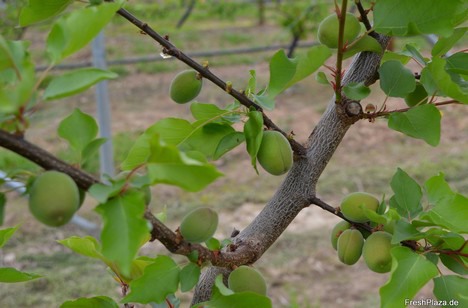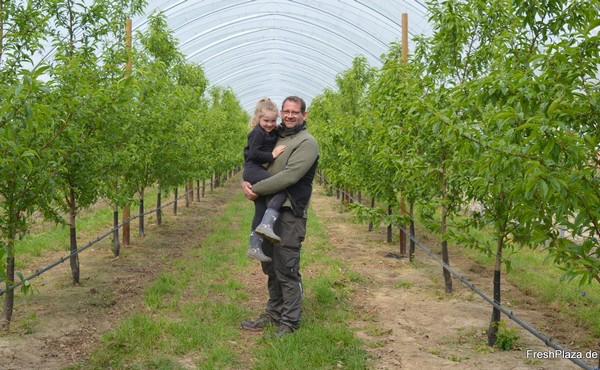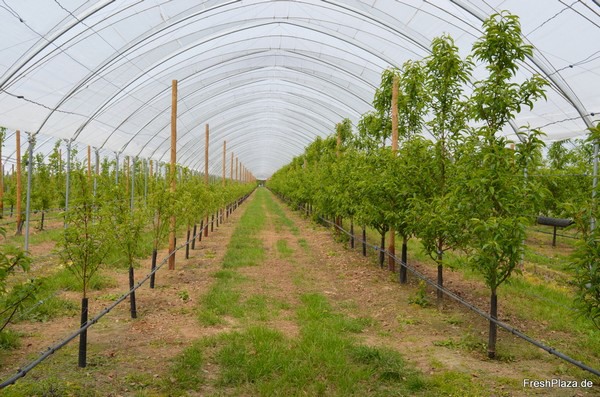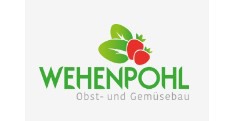For a long time, stone fruits such as apricots, nectarines and peaches were regarded as imported goods par excellence. But after the first, successful cultivation trials in southern Germany, the tropical fruits are now also growing and thriving in Lower Saxony. "We will harvest our first marketable apricot crop this year," says Hubertus Wehenpohl. The innovative farmer from Vechta, in the heart of the Oldenburg Münsterland region, produces the stone fruit on a total of 1.7 hectares.
 Apricots from the Oldenburger Münsterland.
Apricots from the Oldenburger Münsterland.
In 2020, the first plants were planted, Wehenpohl says. "A few years before that, we had already expanded our portfolio to include blueberries. But we were always on the lookout for new fruit crops. That's how we eventually came up with the idea of planting apricots, nectarines as well as peaches." The trees usually need a few years before they bear their first fruit. "Last year we were then able to offer the first stone fruits in our self-service farm store, and the overall feedback was gratifying."
 Hubertus Wehenpohl and his daughter in the stone fruit tunnel. A total of six apricot varieties are now grown, as well as several nectarine and peach varieties.
Hubertus Wehenpohl and his daughter in the stone fruit tunnel. A total of six apricot varieties are now grown, as well as several nectarine and peach varieties.
Now the next step is imminent. If everything goes according to plan, the first stone fruits are to be sold via the ELO cooperative from July. Wehenpohl: "The persistent cold has been particularly hard on us this year and we have had to invest a lot in frost protection. Until week 18, we had to heat our tunnel systems with pellet stoves. In total, we needed about 30 pellet stoves per hectare, which again was particularly costly." According to Wehenpohl, the crops' high sensitivity to frost coupled with their high maintenance requirements are the main reasons why only a few growers in northern Germany engage in stone fruit cultivation.

Insight into the apricot tunnel: There is only one year's difference between the left and right trees.
The apricots are harvested between July and September. The distributed harvesting process means that a consistent quantity would be available to the trade for three months straight, Wehenpohl emphasizes. "We will be able to pick about 15 percent of the volume of a full crop this year. That means volume will continue to increase year over year. Furthermore, we would also have expansion possibilities, but we want to continue trying out the cultivation for two to three years first and wait to see how the product is received by consumers."
More information:
Hubertus Wehenpohl
A+C Wehenpohl GbR
Oldenburger Str. 274
49377 Vechta
Tel: 04447/1690
E-Mail: acwehenpohl@gmail.com
https://www.wehenpohl.de/
